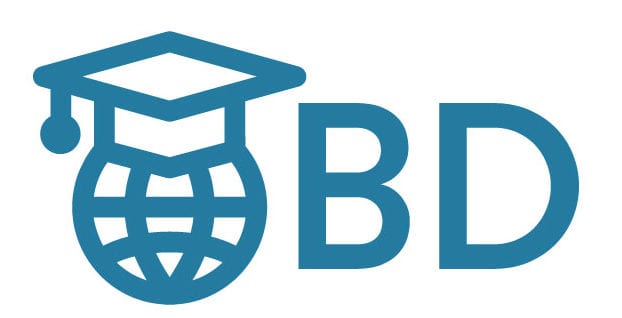Do you feel unsure about the college degree to pursue but also don’t want to waste your time while exploring your options? Then perhaps an exploratory program offered by some U.S. colleges and universities may be suitable for you!

What are Exploratory Programs?
In the context of college education, exploratory programs refer to initiatives that are implemented to support students who need to explore and identify their academic and career interests before settling for a specific major. According to Drexel University, students who explore their options before declaring their major are more likely to finish their degree program on time compared to those who declare upon admission.
Exploratory programs also extend to enrolled students who may want to change their current major. Based on the published works of the National Center for Education Statistics, around 33% of students in Bachelor’s and Associate’s degree programs change their declared Majors at least once within the first three years after enrollment.
Furthermore, the NCES report also disclosed that around 35% of students originally enrolled in a STEM major program change their field of study within their first three years. On the other hand, only 29% of students enrolled in a non-STEM degree program change their original field of study.
Exploratory Students vs. Undecided/Undeclared Students
Exploratory, undecided and undeclared students are terms that are often interchangeably used. However, there are certain differences to consider. Students can enroll in some universities and colleges as Undecided or Undeclared, which means they have yet to decide on a Major to pursue. More often, they will attend General Education classes and other general or introductory courses that are prerequisites of the potential Major they may pursue later on.
Unfortunately, there is a high probability that these students will leave the institution if there are no initiatives to support and guide them on their academic and career paths. According to the National Academic Advising Association or NACADA, the problem of a significant number of students withdrawing from their programs or institutions is significantly striking at open-access institutions and community colleges.
On the other hand, colleges and universities that have Exploratory Programs generally mean that they have services and components that actively support the needs of Undecided and Undeclared students. These features may include at least one of the following:
- Advisors dedicated to academic advising for exploratory students
- Career exploration workshops, fairs, seminars and related events
- Skills and interest assessments
- Mentorship opportunities
- Opportunities for experiential learning
- Introductory or exploratory courses in various fields
Why Students Choose to be Exploratory/Undeclared
Some of the reasons students will prefer to be Undecided or Exploratory in their Major include the following:
- Uncertain about their career goals and their skills and interests
- Exploration of passions and skills for personal growth and development
- The need or desire to explore and experience various academic disciplines before committing to a specific field
- Openness to new opportunities, especially in fields that they’re not exposed to while in high school
- Avoiding making a premature commitment
- Transitioning into college without the pressure of immediately choosing a Major
- The advisory support and services offered by the Exploratory programs
20 Colleges that Accommodate Exploratory Students
Xavier University

Every year, Ohio-based Xavier University typically has more than 30% first year students who don’t choose their major yet. Those who have already chosen, however, tend to change their majors within their first two years. Thus, the school offers an Exploratory Program where students can work closely with their academic advisors, mentors and professors to help them discover their paths and ultimately declare their major during their sophomore years.
During their exploratory year, students enroll in first-year seminar classes where they can experience various fields of study and discover their interests. They also have access to a variety of services offered by the University’s Career Development Office, such as self-guided courses, career assessments and career exploration resources.
Drexel University

Based in Pennsylvania, Drexel University’s Goodwin College of Professional Studies offers a First-Year Exploratory Studies program that helps students explore their options with multiple majors and careers. With one-on-one academic planning and advising, students are guided in taking the right path that suits their interests and career goals.
The exploratory program opens doors for students to a variety of Drexel’s Majors across its various campuses, including:
- College of Arts and Sciences, e.g., Chemistry, Environmental Sciences and Mathematics
- College of Computing and Informatics, e.g. Software Engineering
- College of Nursing and Health Professions
- College of Engineering (all undergraduate majors)
- School of Education
- Antoinette Westphal College of Media Arts & Design, e.g., Art History, Graphic Design, and Entertainment and Arts Management
- Bennett S. LeBow College of Business (all undergraduate majors)
- Dornsife School of Public Health
Students under the exploratory program have two academic pathways that they can consider, depending on the type of major they will eventually choose later on. These pathways are the STEM path (science, technology, engineering and mathematics courses) and the non-STEM path (humanities, social science and business courses). Students will also attend Drexel’s exploratory courses, namely Career Exploration and Planning and Academic Exploration and Planning.
Purdue University
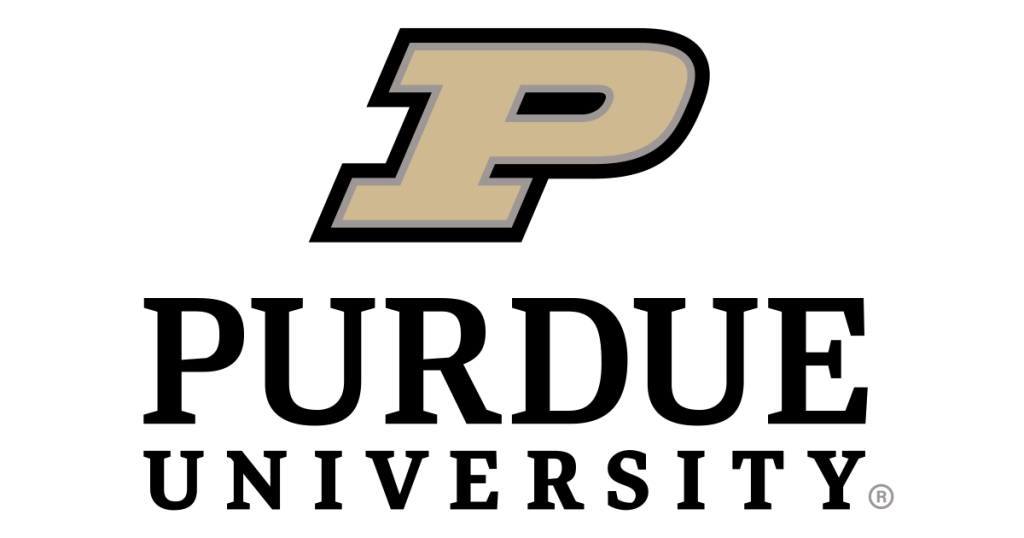
At the Indiana-based Purdue University, undecided or undeclared students have up to four semesters to ultimately choose their Major while under the University’s Exploratory Studies program. The University provides a range of services to guide exploratory students in assessing their interests and strengths and in determining their academic and career paths.
The EDPS 10500 Academic and Career Planning course is a unique course that’s only available to exploratory students at Purdue. It’s a three-credit-hour course in a hybrid learning format that helps students discover the career and major most suitable to them through a range of activities, including group discussions, personal reflections and web research.
University of South Florida

University of South Florida offers its Exploratory Curriculum (ECM) program across its three campuses. The program allows first-time Freshmen students (i.e., those admitted directly from high school) to register as many as 36 credit hours before finally declaring a Major. In this way, students can explore their interests without wasting their time, as they will be attending General Education courses that are required for any Major at the University.
Students under the ECM program will also be taking a special exploratory course with credits that count toward their Creative Thinking General Education requirement. ECM advisors are also available on each campus to guide students in making decisions on their degree options. The University also holds ECM-oriented Events such as panel discussions, major expos and workshops.
Miami University

Students entering Miami University have at most four semesters to make an informed decision on the undergraduate major of their choice through the University’s Exploratory Studies program. With the help of the school’s Office of Exploratory Studies, first-year students are each assigned a Student Success Navigator who provides a proactive and holistic advising approach that will support the student’s academic and career success.
To ensure that exploratory students can finish on time, regardless of the Major they’ll ultimately choose, they begin their first years at the University by fulfilling the requirements of the Miami Plan, a flexible curriculum of core courses necessary for all Majors.
Butler University

Students who are undecided about their Major at the Indiana-based Butler University will never feel lonely, thanks to the school’s Exploratory Studies program, which helps students discover their strengths and make well-informed decisions on their academic and career paths. The University provides a range of special services to guide exploratory students in making the right choice. These include:
- Academic advisors trained for exploratory students
- Observing in classes of various Majors
- A unique Exploratory Studies course
- Participation in job shadows and interviews
- Self-exploratory assessments
- Exploratory Studies on-campus resources
There is no deadline to declare your Major at Butler University. Take note, though, that students don’t graduate with a degree in Exploratory Studies.
Western New England University

The Exploratory program of Western New England University allows students to start fulfilling their General Education requirements while still deciding from among the University’s almost 40 minors and 50 majors. However, students are highly advised to consult their admissions counselor or academic adviser, as some of the University’s programs do not allow for first-year exploration.
The University’s Career Development Center provides a range of services that cater specifically to exploratory students. Faculty and staff are also the go-to people for exploratory students who need assistance in selecting their classes and charting their academic paths.
Slippery Rock University

First-year students who are undecided about their Major can feel confident about finishing college on time at Slippery Rock University of Pennsylvania, thanks to the school’s Exploratory Studies program. At Slippery Rock, there are at least 200 new students with the abilities and skills to succeed but have yet to decide on the specific college degree to pursue. Through the Exploratory Studies program, these students can turn to a multitude of resources that help them carve their personal, academic and career goals.
Some of the features of Slippery Rock’s Exploratory Studies program include the following:
- Access to the Office of Career Education and Development services to help exploratory students determine career opportunities for the majors they’re considering
- The Rock Studies program, a 42-credit curriculum consisting of general education courses that all students at the University are required to take regardless of major
- Opportunity to live in a community of like-minded students who are also undergoing self-discovery
The Exploratory Studies program is also available to transfer students.
Valparaiso University

Students don’t have to feel pressured when choosing a specific Major when entering college! At Valparaiso University, freshmen are given the opportunity to discover their passion and interests while still making progress towards graduating on time. This is thanks to the University’s Exploratory Studies program offered by the College of Arts & Sciences.
Exploratory students work with their academic advisor to understand the various Majors offered by the College of Arts & Sciences and their career opportunities. Furthermore, they will attend a unique Exploratory Studies class that will give them the chance to hear from faculty and representatives of the various majors and programs at the University as well as from various working professionals.
Exploratory students also have access to the following:
- Valpo Career Center offers a range of career exploration services, including personality assessments and career path-matching
- PathwayU, which is an online self-guided career assessment with algorithms for quickly determining career options based on students’ interests
- Institute for Leadership and Service, which prepares students for a future with a sense of calling for the larger world
Indiana-based Valparaiso University has around 90 undergraduate programs offered at its campus.
Black Hills State University

First-year students in any of the South Dakota campuses of Black Hills State University have the opportunity to explore the best Major for them through the school’s Exploratory Studies program. This two-semester program provides students with a retention and recruitment Specialist who will introduce the various degree programs offered by the University. Exploratory students can also depend on the guidance of the faculty in discovering their interests and passions, and shaping their academic path in the University.
The University also offers students under the Exploratory program the GS 100 course, a 1-credit course conducted by the Retention & Recruitment Specialist that engages students in self-discovery, exploration of majors offered by the University, participation in career-related activities, and involvement in the student community. This course isn’t mandatory, but exploratory students are highly advised to attend it.
University of Massachusetts Amherst
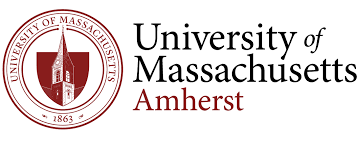
The University of Massachusetts Amherst offers an Interdisciplinary Exploratory Track program to its incoming first-year students who have yet to choose the Major they’ll pursue. It’s also offered to those who might want to design their own Major to best suit their multiple interests.
Exploratory students will be guided by an Academic Advisor who will assist with class selection as well as exploration of Majors offered by the University. Through one-on-one advising, the academic advisor can also help students determine their strengths and interests as well as define their academic goals.
In their first semester at the University, all exploratory students will also attend a First-Year Seminar (FYS) that’s specifically designed for them. It’s a one-credit course where students can engage in self-assessments as well as learn techniques for academic success.
University of Wisconsin-River Falls

The University of Wisconsin-River Falls has an Exploratory Advising Program to provide support and guidance to all students who have yet to choose a major at the University. It’s actually available to all UW students, including those who have already declared a major but are still feeling unsure.
Exploratory students may consult with an academic advisor who will provide information on the potential majors and careers available to them based on their interests, passions and personal goals. The academic advisor will also work with the exploratory students in selecting their classes.
Professional staff members at the University’s Career Services are also available to assist exploratory students in identifying their strengths, taking career assessments and other related activities.
Oregon State University
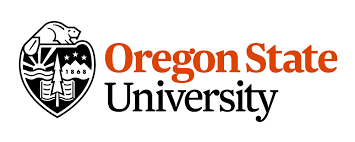
The University Exploratory Studies Program, or UESP is mainly designed for first-year and second-year students who are still exploring their options on the Majors offered by Oregon State University. However, the program also accepts students with a major at any level who want to reconsider their current selection.
UESP advisors will assist exploratory students in selecting Gen Ed courses, which all Oregon State students are required, as well as introductory courses of the majors the exploratory students are interested in. This will ensure that the students under the UESP will graduate on time. Moreover, UESP advisors also provide guidance and assistance for the students to make well-informed career decisions.
Other services that are available to UESP students include:
- The Career Decision Making course, which provides two credits
- One-on-one academic coaching with trained peer coaches
- Comprehensive counseling services from the University’s Career Services
According to the University, UESP students are highly encouraged to declare their chosen Major and College “as soon as” they have made the decision. Students can also transition from the exploratory program to an academic department “at any time.”
Saint Michael’s College

Vermont-based Saint Michael’s College highly encourages its first year students to experience a variety of classes before finally pursuing one of the school’s 38 Majors. This is the reason why Exploratory is the largest “Major” of the school’s first years in recent years.
Exploratory students at Saint Michael’s College are each assigned a faculty academic advisor to help them throughout the process including the selection of the most suitable courses and the making of one’s academic and career pathways. Furthermore, many offices at Saint Michael’s, including the Associate Dean, Academic Enrichment and Career Education, employ staff members who are trained to provide for the needs of exploratory students.
Ohio State University
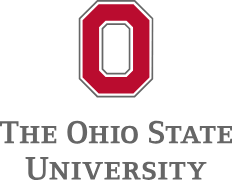
Incoming college students who have yet to decide on their Major at Ohio State University can choose the University Exploration – Undecided/Exploring option when processing their admission applications. Alternatively, they may opt to choose one of the University’s six broad fields of study.
The University acknowledges exploratory students by providing several services and features designed for them. These include:
- Organizing a series of workshops designed to support those searching for Majors
- Senior Bank Program that allows outstanding seniors to assist sophomores and freshmen who want to discuss courses, internships and careers
- Early Intervention Program designed to refer students to resources for academic success
- Collaboration with academic advisors who guide students on their academic pathways
- Self-assessment inventories
- Eligibility to be a part of the University Exploration Honors Program for high-achieving students
- A community of exploratory students
Ohio State University has more than 200 majors for exploratory students to choose from.
Boston University
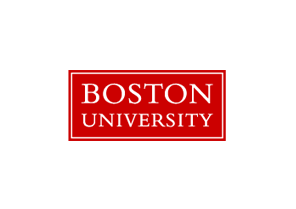
At Boston University, valuable tips and advice are given to students who are still on Academic Exploration or those who have not yet decided on their Majors. Furthermore, the University has a so-called BU Hub where students can choose from at least 1,600 General Education courses to attend to ensure they’re always a step closer to finishing whatever degree major program they’ll ultimately be choosing in later years. Exploratory students are also advised to work with their Academic Adviser to guide them on mapping out their Academic plans and choosing the most suitable Hub units that suit them best.
Swarthmore College

Pennsylvania-based Swarthmore College discloses that “Undecided” is its most popular Major, which isn’t a surprise, though, considering that the College tends to accept students not for the specific Major they want but for their passion in engineering, natural sciences, humanities and social sciences.
Swarthmore students also have the opportunity to design their own major, where they take the initiative to make their own academic path in collaboration with their academic advisor. Some of these unique programs include majors in technology and human experiences, ethnomusicology, and urban studies. In addition, there are already curricula available for special programs that were designed by previous students and approved by the faculty.
Pomona College
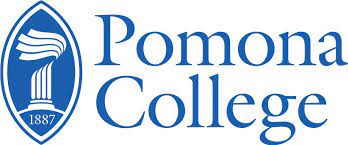
Based in California, Pomona College understands that students spend their first year of college exploring the various programs under their liberal arts education. Students also tend to pick their major in their second year or change their minds within the first two years. For these reasons, students will take a range of courses that will fulfill their General Education requirements and sharpen their basic academic skills while they’re still in their exploratory stage. Pomona students are highly encouraged to choose from the school’s 48 degree majors by their second year.
Valencia College

Valencia College has an Exploratory Degree Pathway program where students can take their Associate in Arts (A.A.) degree with the intention to transfer as a junior and complete a Bachelor’s degree at the University of Central Florida. The program is designed for students who are exploring their career options while still taking steps forward toward the completion of a Major by attending Common Program Prerequisites (CPP) courses at Valencia College through an Associate degree program before attending higher-level coursework for the Major they’ll ultimately end up choosing later on.
Students under this program can explore their potential academic paths through the school’s Degree Pathways portal and discuss their plans with an advisor. The A.A. degrees at Valencia provide the lower division preparation for as many as 200 majors across campuses in Florida’s State University System.
Temple University

The College of Education and Human Development, a part of Pennsylvania-based Temple University, has a pre-college program on Exploratory College Coursework in Education designed for 11th and 12th-grade high school students who are qualified for dual enrollment.
The program offers several three-credit general education courses that count towards the student’s future Bachelor’s degree at the University. It allows high school students a glimpse of what it’s like to be college students and determine if a career in the education or human development field is for them. The tuition for these courses is offered at discounted rates.
Additional Resources:
